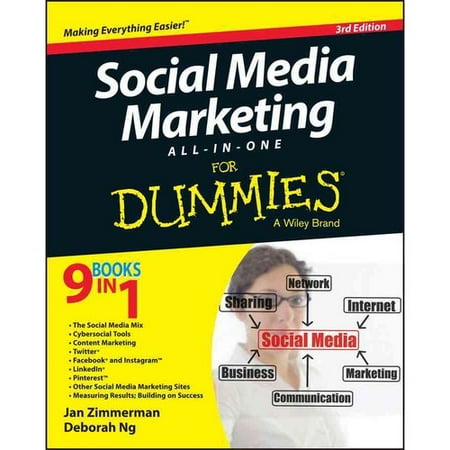Social Media Policies Detrimental to Digital Marketing
https://admateacademy.blogspot.com/2017/04/social-media-policies-detrimental-to.html
 |
| © March Oyinki 2017 |
The Social Media policies implemented by most organizations create filters that block digital media contents, and prevent them from reaching their target audience, and make delivery of commensurate ROI unattainable. The Internet World Stats published a report in March 2017, showing that 38% of the world population, which is 3.7 billion, now have access to the Internet. Research also shows that 96% of people who use the Internet are within the employable age bracket of 25 and 34 years (Google Consumer Barometer), and according to Barbra Dozier, 70% of web traffic occur within the work hours of 9am to 5pm.
The Internet is the bedrock of digital marketing, and the success or failure of the digital media marketing strategy of a brand depends largely on the number of engagement by Internet users that your social media content attracts to the site. This lead generation process is the whole essence of Search Engine Optimization and brand promotion efforts aimed at attracting as much traffic as possible to the ecommerce website. The relevance of the Internet and its strategic value to content creators, social media managers and digital marketers cannot be over-emphasized; but the intricacies underlying the effective and successful implementation of a digital marketing strategy on the Internet, that is the real issue which the digital marketing community would have to grapple with.
All of these research results are clear indications that the large working class population who access the Internet daily, form a greater percentage of the critical audience that majority of B2B digital marketing campaigns and advertisements are targeting. Quite admirably, the percentage of workplace Internet users may appear high and impressive; they however do not amount to much when we consider recent reports by Pew Research Center, which shows that Email and the Internet top the list of important tools for workers who use the Internet with Email and Internet users accounting for 61% and 51% respectively. Landline phone makes up 35% users and smartphone accounts for 24%, whereas Social Networks make up the remaining 4%.
The real issue is how all the social media network sites, numbering about 210 would have to jostle for relevance within the 4% of active workplace social media users. Interestingly, this small percentage of social media users are constrained by company’s information disclosure and digital media policies, that eliminate a large number of the leading social network sites, listing them as potential threat to the company’s systems’ integrity, and restrict employee access to many of them.


The digital marketing industry has become quite dynamic and largely scientific, and understanding the right application of digital marketing strategy in the promotion of corporate brands has become a complex process that requires knowledge and competency. Developing a marketing strategy for B2B brand engagement has gone beyond the confines of social advocacy and content promotions to a careful analysis of corporate digital media policies. The usual one-plan-fits-all approach adopted by social media managers, no longer produce the desired results due to the social media policies of quite a number of corporation organizations. Creating content for social media, targeted at the corporate consumers, required understanding the social media policies of the organizations in the targeted business segment, because, companies no longer allow open access to certain social media networks on their systems.

The digital marketing industry has become quite dynamic and largely scientific, and understanding the right application of digital marketing strategy in the promotion of corporate brands has become a complex process that requires knowledge and competency. Developing a marketing strategy for B2B brand engagement has gone beyond the confines of social advocacy and content promotions to a careful analysis of corporate digital media policies. The usual one-plan-fits-all approach adopted by social media managers, no longer produce the desired results due to the social media policies of quite a number of corporation organizations. Creating content for social media, targeted at the corporate consumers, required understanding the social media policies of the organizations in the targeted business segment, because, companies no longer allow open access to certain social media networks on their systems.
Quite a sizeable number of organizations now create firewalls and filters to block unauthorized social media network sites, making it impossible for your campaigns to penetrate their systems, thereby unable to reach their employees. Companies prohibit employees from visiting or opening a number of unauthorized websites and social media channels, and making use of any of the prohibited social networks becomes impossible because they are blocked by the firewall and the content you are trying to send will not reach its target audience.
Companies such as Microsoft have started systematically sidelining its competitors in the social media space, by taking advance of its widely used MS Office and Learning applications, as well as some other new solutions that the company recently launched, such as LinkedIn Elevate, to influence users of its products to initiate a stricter social media, data privacy and information protection policies by strategically positioning its newly acquired social media platform as the most suitable and secure social media channel for the corporate world.
Companies such as Microsoft have started systematically sidelining its competitors in the social media space, by taking advance of its widely used MS Office and Learning applications, as well as some other new solutions that the company recently launched, such as LinkedIn Elevate, to influence users of its products to initiate a stricter social media, data privacy and information protection policies by strategically positioning its newly acquired social media platform as the most suitable and secure social media channel for the corporate world.
Majority of the prohibited social media channels are those that have a reputation for allowing explicit content and fake news, and several top rated social media networks fall into this category. Trying to execute a social marketing campaign that makes use of such delisted channels to target certain big corporate entities, in specific business sectors, will yield dismal and disappointing results. Essentially, social media managers and digital marketers would have to know those social media channels that these corporate organizations have approved before venturing.
The number of Internet users who access the web through social media platforms in the workplace are significantly high, and large majority of them are potential buyers or customers, because, they have a more favourable credit status, and can easily make purchase of items and services that they find useful. Therefore, making use of the wrong social media channel to target this category of users would be tantamount to failure and wasted investment.



















